Despite recent rains, nomadic children are now severely undernourished after two years of drought.
A girl holds her younger sibling at a therapeutic feeding centre in the drought-hit Bakool Region of Somalia.
UNICEF's new report, 'Child Alert: Horn of Africa', highlights the growing need for humanitarian aid in parts of Djibouti, Eritrea, Ethiopia, Kenya and Somalia, where millions of people are affected by the worst drought to hit the region in decades. Recent rains have come too late to help pastoralists who move throughout the Horn of Africa while tending to livestock, their primary source of income. Those most at risk are children.
A malnourished child with her treatment chart, Gode Hospital, Ethiopia.
Malnutrition
VIDEO: Low High bandwidth (Real player) UNICEF correspondent Dan Thomas reports on efforts to help starving children in Ethiopia's Somali region.
Children of pastoralists are typically fed a high-protein diet of fresh milk and meat from their livestock. But when drought kills livestock or they stop producing milk, the shock to a child's metabolism causes severe malnutrition at a faster rate than it would for other children who rely less on protein. Child pastoralists are therefore among the most vulnerable children in the Horn of Africa.
The village of Dorah, Djibouti, where it has not rained for three years.
The burden on children
VIDEO: Low High bandwidth (Real player) UNICEF correspondent David McKenzie reports from southern Somalia on the never-ending search for clean water.
The daily chore of gathering water for cooking, laundry and bathing usually takes about three hours in the morning and is traditionally the work of children and women. During drought or an erratic rainy season, however, water holes dry up and become crowded. The time spent dedicated to fetching water can increase many-fold. Some children have the added responsibility of herding the livestock, which can consume an entire day, every day, just walking and waiting for the animals to fill their stomachs on paltry pastureland.
A health centre, Somalia
Disease
VIDEO: Low High bandwidth (Real player)UNICEF correspondent David McKenzie reports from Somalia on the fight against disease.
Getting medical attention is difficult in the best of circumstances in pastoralist areas because health services are so poor. When there is drought and children become undernourished, they are often too weak to fight off opportunistic diseases such as measles that would not normally kill a healthy child. After a period of drought, sudden rain squalls bring contamination to water holes, and children can contract cholera and diarrhoea. Sudden rains also lower temperatures and increase the risk of fever and illness. Swarms of mosquitoes breed in puddles, and malaria quickly follows.
A teacher in an empty classroom, Ethiopia.
Falling behind
VIDEO: Low High bandwidth (Real player)UNICEF correspondent Thomas Nybo reports from northern Kenya on children forced to drop out of school.
School attendance is usually low among pastoralist children because education services and infrastructure are inadequate for people who generally have no fixed abode, and who cross and re-cross borders as they move from pasture to pasture. During a drought, children must spend time caring for their siblings and the dwindling herd rather than attending school. Teachers move with the tribe but may be too concerned with their own survival to be able to teach.
A food distribution centre, Kenya
The burden on mothers
VIDEO: Low High bandwidth (Real player)UNICEF correspondent Thomas Nybo reports on the burden on mothers in northern Kenya.
Mothers themselves are made vulnerable from hunger in times of drought, and their workload increases when their husbands are away for long periods in search of water and pasture for the herd. If a child falls sick, a mother cannot leave her other children to seek medical care at a distant town many days' walk away. She may be faced with a terrible dilemma of being unable to get the care needed for all of her children.
A home burned by a rival clan, Kenya
Conflict for resources
VIDEO: Low High bandwidth (Real player)UNICEF correspondent Sarah Crowe reports on danger facing pastoralists in southern Somalia.
The head of the household, usually the father, may leave the family temporarily to lead the animals away from their customary routes and pastures. Often, pastoralists from neighbouring territories will work to share resources, but conflict can arise amid competition for water and land. If conflict causes injury or death, the family left behind has lost everything, including the herd.
Click Below to view Pictures and Interactive Maps or download the Child Alert Report
Imteractive Maps: Drought cycle
Photo essay: Child pastoralists
Also See: UNICEF urges sustained aid to prevent 40,000 child deaths in Horn of Africa
Big Thanks to UNICEF for bringing this crisis to the Worlds attention and for the thankless work they do throughout the World every day saving children lives.





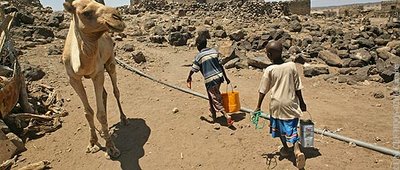
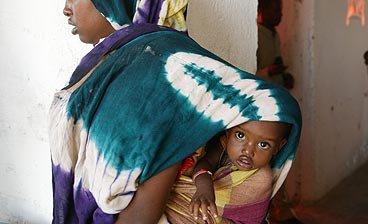
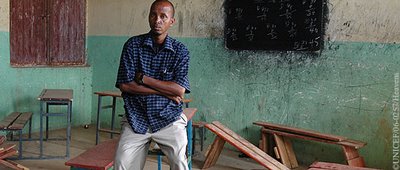
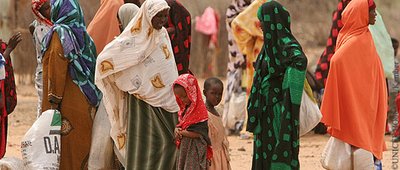
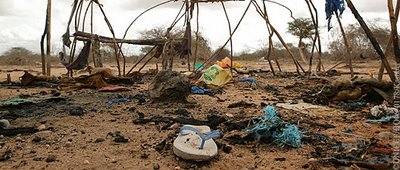
No comments:
Post a Comment